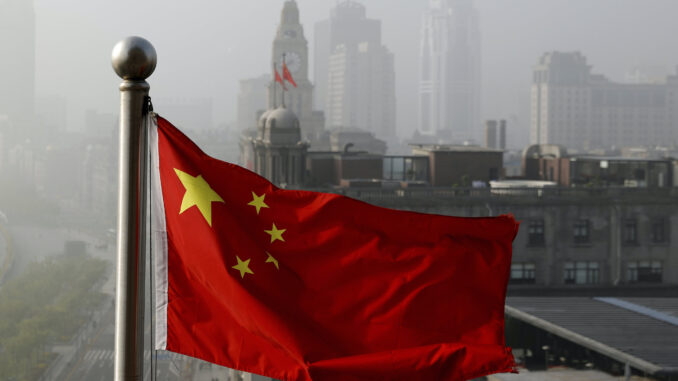
China’s independent refiners may aim to keep potential risk at bay and refrain from taking Iranian barrels in the near term following a new set of sanctions imposed by US authorities, as plentiful availability of discounted Russian cargoes and robust domestic stocks will make it easier to fill the vacuum.
With China’s independent refineries in Shandong set to resume taking Russian Urals — the first cargo since November 2021 arriving in early-June and at least eight more later in the month — trade sources said refiners have started to weigh the risk associated with Iranian oil with attractively-priced Russian cargoes.
“It has become difficult to sell the Iranian barrels compared with a week ago. We have heard some cargoes have been stored at Shandong ports without finding a buyer,” a trading source with knowledge about the matter said.
US authorities announced May 25 new sanctions on several individuals and entities involved in an international oil smuggling and money laundering network that has allowed Iran to skirt oil sanctions.
According to a release by US Department of the Treasury, sanctions for purchasing Iranian oil were extended to Hong Kong-based energy company China Haokun Energy, a subsidiary of Beijing-based Haokun Energy Group, as well as China’s Fujie Petrochemical Zhoushan, a subsidiary of a joint venture between Iranian and Chinese energy companies called PetroChina Pars, which was also sanctioned. China’s Shandong Sea Right Petrochemical was added to the sanctions list of Treasury’s Office of Foreign Assets Control.
Shandong Sea Right Petrochemical, also known as Haiyou Petrochemical, is an independent refinery in China’s Shandong province, while the rest are trading companies that imported Iranian crude barrelsfor Chinese independent refineries.
Weighing risk with gain
As independent refiners stayed on the sidelines and adopted a cautious stance in buying Iranian oil, it has widened the discount of Iranian barrels against ICE Brent futures to around $8/b from $6-$7/b on a DDU basis in Shandong, market sources said.
“As prices of other regular crudes surge while domestic demand is yet to recover, refineries have to cut costs by taking cheap crudes to survive, including Iranian crudes and Russian crudes,” a Beijing-based analyst said.
At 2:30 pm Singapore time (0630 GMT) June 1, the ICE August Brent futures contract was up 90 cents/b (0.78%) from the previous close at $116.50/b while the NYMEX July light sweet crude contract rose 86 cents/b (0.75%) at $115.53/b.
In January-April, about 9.38 million mt of Iranian crude cargoes were delivered to Shandong province, more than double the 4.5 million mt seen in the same period of last year, S&P Global Commodity Insights’ data showed.
Oil importers in China usually report these Iranian crude barrels as Malaysian Nemina, bitumen blend, Oman and Upper Zakum, according to market sources and ship trackers.
“When the spotlight moves away from the latest sanctions, new trading houses will rise to supply Iranian crude,” a Shandong-based analyst said.
Iranian barrels remain in demand by their regular buyers in the independent sector as they are one of the most economic grades available, in addition to Russia’s Urals and ESPO, sources at independent refiners said.
Traders said the sanctions on China’s Shandong Sea Right Petrochemical would remind independent refineries to stay away from making payments directly to companies in OFAC’s sanctions list.
Independent refineries in China usually pay trading companies or importers instead to the suppliers with Iranian background directly.
The latest sanctions, coupled with nil crude import quotas for 2022, may cause more difficulties for Haiyou Petrochemical to operate, sources added. Sources with Haiyou were not available for comment.
Rising Russian inflows
Independent refineries in China halted the flow of Urals in November 2021 due to more competitively priced alternative supplies, and subsequently held off on buying until late-April despite the price of Urals falling to deep discounts against benchmarks following Russia’s invasion of Ukraine in late-February.
In late-April, Urals cargoes for late-May or early-June delivery were trading at a discount of around $5-$6/b to benchmark ICE Brent crude futures on a DES Shandong basis, market sources said.
Of the nine cargoes of Russian crude amounting to 880,000 mt and set to arrive into Shandong imminently, six are heading to Qingdao Port, two into Yantai, and the rest to Rizhao.
The June-arrival volume is close to the total Urals imports by China’s independent refining sector in 2021 of 925,000 mt, S&P Global data showed. Independent refineries in 2020 imported 5.14 million mt of Urals.
Source:






